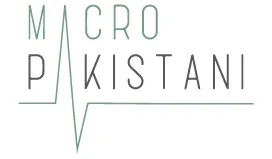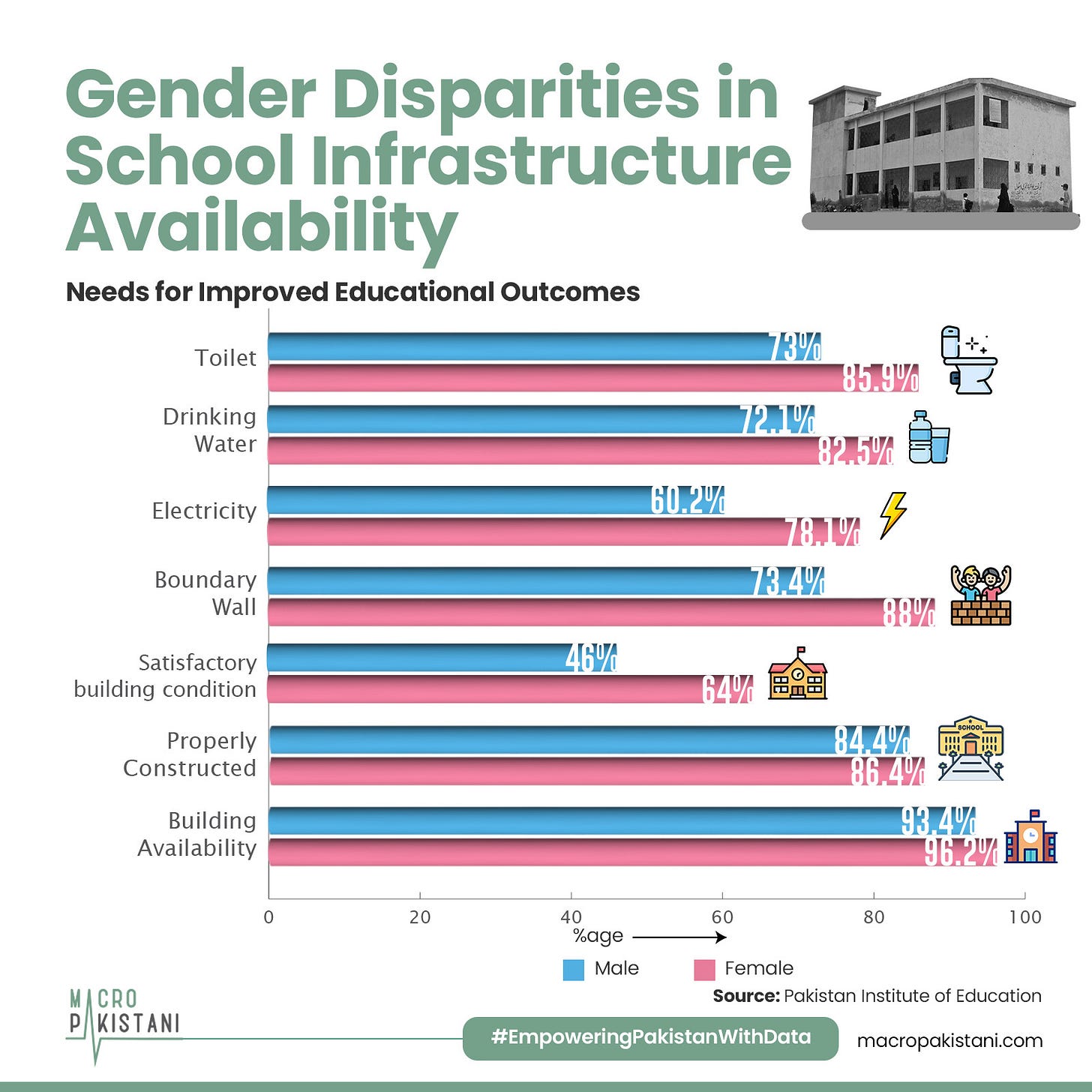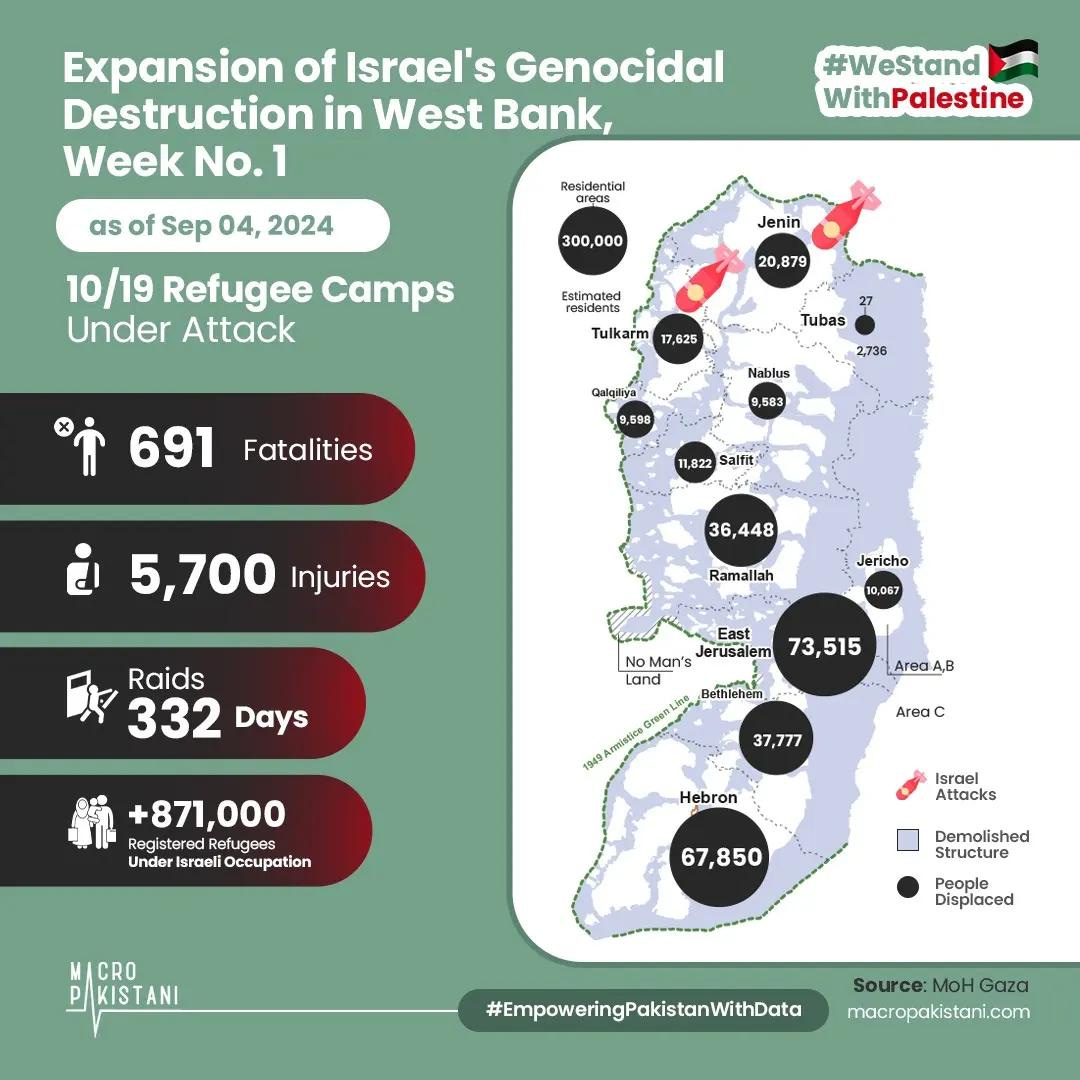Pakistan's Education System
Around 21 million girls are enrolled in educational institutions as compared to 25 million boys from pre-primary to degree stage.

As of the 2022-23 academic year, approximately 13.71 million girls are out of school in Pakistan. Girls are 7% less likely to attend school than boys, with 41.5% of girls and 34.9% of boys remaining out of school from primary through higher secondary levels. Although facilities and enrollment levels have improved, the growth rate of girls education has stagnated, raising concerns about the sustainability of progress, according to the Pakistan Education Statistics (PES) report for 2022-23.
What measures can be taken to address the stagnation in girls' education and ensure continued progress?
Education infrastructure is vital for effective learning. Proper buildings, WASH facilities, electricity, and laboratories are fundamental to creating conducive learning environments in schools and universities. Evidence shows that adequate infrastructure supports better instruction, enhances learning outcomes, and reduces dropout rates. In the 2022-23 academic year, approximately 2,262 girls' schools lacked adequate buildings. Among schools with buildings, 10% have structures that are not durably constructed, 1,389 schools are built with temporary materials, and 4,692 use mixed construction materials. Even schools with durable buildings may still face issues, as 25% of girls' schools need repairs and 6% are in dangerous conditions. Additionally, 7,061 girls' schools lack boundary walls.
Facility availability is also a concern; 8,143 schools do not have toilets, and 10,279 schools lack drinking water. Drinking water is a basic necessity, yet 17% of schools are missing this essential service. Electricity, critical for a conducive learning environment and for supporting digital literacy and ICT skills, is also lacking. Overall, 33% of schools in Pakistan lack basic facilities, and 22% of girls' schools, totaling 12,874, do not have this basic facility. Among these, 1,691 are located in urban areas.
To tackle the stagnation in girls' education, Pakistan must improve school infrastructure and address gender disparities. Prioritizing better facilities and targeted policies will support educational development and ensure progress.
GRAPHIC
For 11 months, death and destruction have ravaged Gaza, analysts have been drawing attention to Israel's concurrent actions in the other Palestinian territories: the occupied West Bank and East Jerusalem.
The situation in the West Bank has attracted some global focus, particularly with Israel’s largest military operation there in over 20 years, which has resulted in extensive damage to properties and infrastructure in the northern cities of Jenin, Tulkarem, and Tubas.
In Occupied East Jerusalem, however, experts suggest that Israel has adopted a different tactic. The ongoing Gaza genocide has been used to hasten the "silent displacement" of Palestinians, aiming to alter the region's demographic landscape.
This strategy involves four key components: demolitions, evictions, land confiscation, and the expansion of illegal settlements.
In case anyone wants to contribute (to the Palestine solidarity campaign on Macro Pakistani) and send data-backed content, please feel free to send an email to fakiha.rizvi@brandnib.com
Pakistan’s latest Indicative Generation Capacity Expansion Plan outlines electricity capacity additions by 2034 but prioritizes expensive hydropower projects and local coal over cheaper renewable alternatives, contradicting the country’s climate policies such as the Alternative & Renewable Energy (ARE) Policy 2019.
Team Brand Nib did the data visualizations for the women empowerment recommendations by OICCI, in case you want to read this post too:
We are in the process of testing this new feature where Macro Pakistani who read this newsletter can directly give us feedback via Substack chat:
Data Visualization & Marketing Partner: Brand Nib
Visit: https://macropakistani.com/advertise/
Grateful for the ever-growing list of collaborators!
About Us: Macro Pakistani is a data-driven research platform that aims to provide a basic understanding of Pakistan’s economy. If you have an interest in contemporary news but are currently overburdened with sensationalism and specialized vocabulary, we are the platform for you.
How are we doing? Please send us any questions, comments or suggestions by replying to this email.







